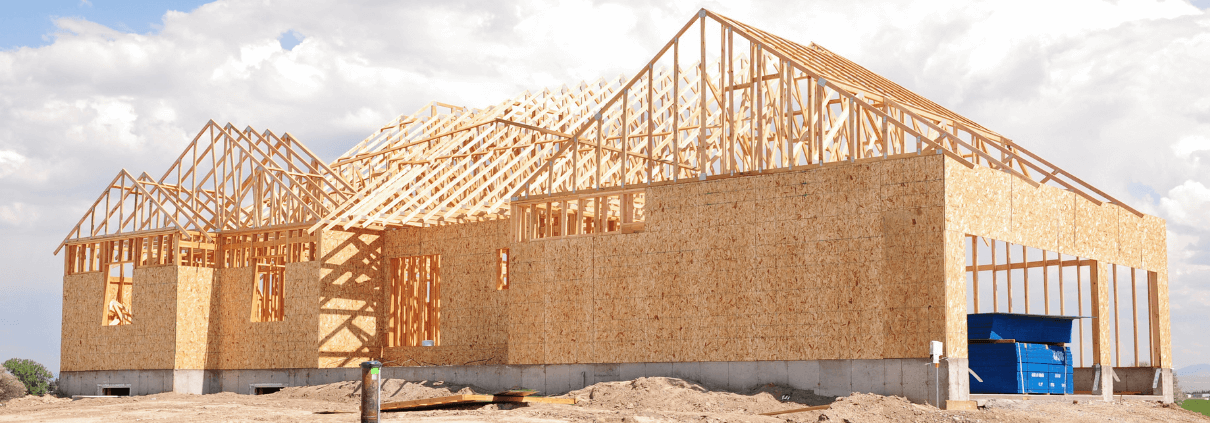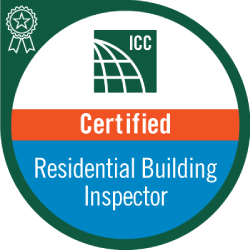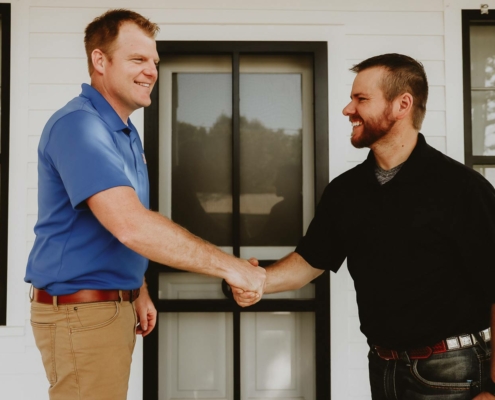What is a new construction home inspection?
A new construction home inspection is very similar to a home inspection on a pre-existing home with some differences. The inspection is similar in that all the major structural components of a house like plumbing, electrical, heating and air conditioning, roof, siding, foundation, windows, appliances, and more are inspected prior to closing on the house. They are different because the inspection on a new house is often done in phases according to a schedule with multiple inspections. The advantage of the phase approach is that a house under construction can be fully inspected without anything blocking the inspector’s view like foundations, walls, or appliances. After each major phase of construction is completed, an inspection can be done to make sure each step is done well.
Do you really need an inspection on a newly built house?
The answer is an overwhelming, “Yes!” Think about it. It has been reported that as many as 100 people may be involved in the construction when you include your builder and subcontractors and all their employees. Everyone is human and making mistakes is a fact of life. There are many things that can go wrong during construction that can be very costly or time-consuming to repair:
- Improper grading, poor drainage
- Incorrect wiring or plumbing
- Poorly constructed roofing or siding
- Incorrect ventilation
- Poorly routed ducts
- And much more
County building inspectors are busy and are looking to enforce minimum code standards, they are not working on your behalf as an independent inspector would, so their inspections will not bring up everything you’d see in a typical home inspection. The investment in a home inspection is well worth the money, because defects found during construction can be corrected immediately, rather than after you move in.
What is the new construction home inspection schedule?
Dooley Home Inspections usually follows a schedule with 3 or 4 phases:
- Pre-Pour Foundation – This phase checks for proper grading and drainage, particularly important if you are in or near a floodplain and proper spacing and locations for utilities coming up through the foundation
- Pre-Drywall – This phase is sometimes combined with phase #3 and checks for proper framing, electrical, AV wiring, roofing, and plumbing
- Pre-Insulation – This phase checks for air leakage throughout the home which can cause HVAC systems to run inefficiently and areas of the house to be uncomfortable
- Pre-Final Walk-through with your builder – This phase most closely resembles a traditional home inspection and checks for build quality of the sheetrock, appliances, lights, HVAC system and all the major mechanical components of the home.
Even though your builder may be highly rated and respected, you should really consider hiring an independent home inspector. “On Final walk-through inspections, I check to make sure the AC system is calibrated correctly. I look at the electrical panel to see if correct breakers were installed for each circuit. I especially look for code requirements like placement of GFCI and AFCI receptacles, adequate handrails at stairways and proper ventilation and insulation in attic space,” says Jonathan Dooley. Dooley Home Inspections is an IRC certified building inspector, so if you’re in the area and ready to search for new construction home inspections near me, go ahead and schedule an inspection today!
What is a new home construction inspection?
Similar to a typical home inspection, new homes are inspected for build quality and structural integrity. They are often inspected in multiple phases after each major step in construction is completed.
Do new construction homes need inspection?
Yes. Everyone makes mistakes, even home builders. Home inspections on new construction is advised to ensure proper build quality and that structural components are built to correct specification.
What does a new home construction inspection cost?
New home inspections start around $375 for a three phase schedule at pre-pour foundation, pre-drywall, and final walk-through.
Do I need an independent new construction home inspector?
A small investment in an independent home inspector is a good idea, so you can find and address issues during construction and before closing on your new home. You don’t want to wait until after closing or rely on your home warranty to correct issues because it is easier to handle before you move in.






Leave a Reply
Want to join the discussion?Feel free to contribute!